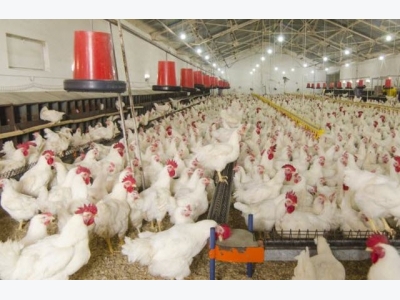Breeding resistant chickens for improved food safety

Test identifies roosters whose blood contains naturally high levels of cytokines and chemokines.
A new test developed by researchers with the U.S. Department of Agriculture's Agricultural Research Service (ARS) in College Station, Texas, could make it easier to breed pathogen-resistant chickens.
The test identifies roosters whose blood contains naturally high levels of two key chemicals: cytokines and chemokines. These chemicals mobilize the birds' innate immune response, according to microbiologist Christi Swaggerty in the ARS Food & Feed Safety Research Unit.
Using the new test, commercial poultry breeders can single out roosters that have a strong immune response and use them to selectively breed a more robust flock. Such resistance, especially during the birds' first week of life, may lower costs related to animal well-being and food safety, ARS said.
Protecting chickens from pathogens involves sanitation, vaccination, biosecurity and the use of antibiotics and other medications. However, some chickens have an especially robust and efficient immune response and can resist pathogens, Swaggerty noted.
The researchers used the test to select roosters for breeding a line of resistant broilers. Then, they exposed the resistant broilers to several pathogens and compared the resistant group to a group of susceptible broilers bred from roosters with low cytokine and chemokine levels.
The published results showed that the susceptible broilers had more pathogens and signs of infection than the resistant group. Ultimately, such resistance could mean fewer pathogens remaining on birds at the processing plant and improved consumer safety, Swaggerty noted.
Swaggerty and her colleagues study the genetics of chickens' resistance to foodborne disease-causing pathogens, such as salmonella and campylobacter.
Coccidiosis, another poultry disease, is caused by a single-celled parasite known as Eimeria. In the U.S., coccidiosis inflicts annual production losses of up to $800 million, making this intestinal disease a significant threat to nearly 9 billion meat-type birds.
Có thể bạn quan tâm
 Project to prevent erysipelas in organic poultry
Project to prevent erysipelas in organic poultry A new project that that will enable scientifically based guidelines to prevent future erysipelas outbreaks in both organic poultry and pig production.
 Parasite control can reduce hen mortality
Parasite control can reduce hen mortality A recent PhD study has investigated animal welfare in organic egg production and found an association between hen mortality and the level of parasite infection
 Can fly larvae replace synthetic methionine in organic egg systems?
Can fly larvae replace synthetic methionine in organic egg systems? Project to determine if feeding hens a diet supplemented with black soldier fly larvae will cause their eggs to taste or look different.